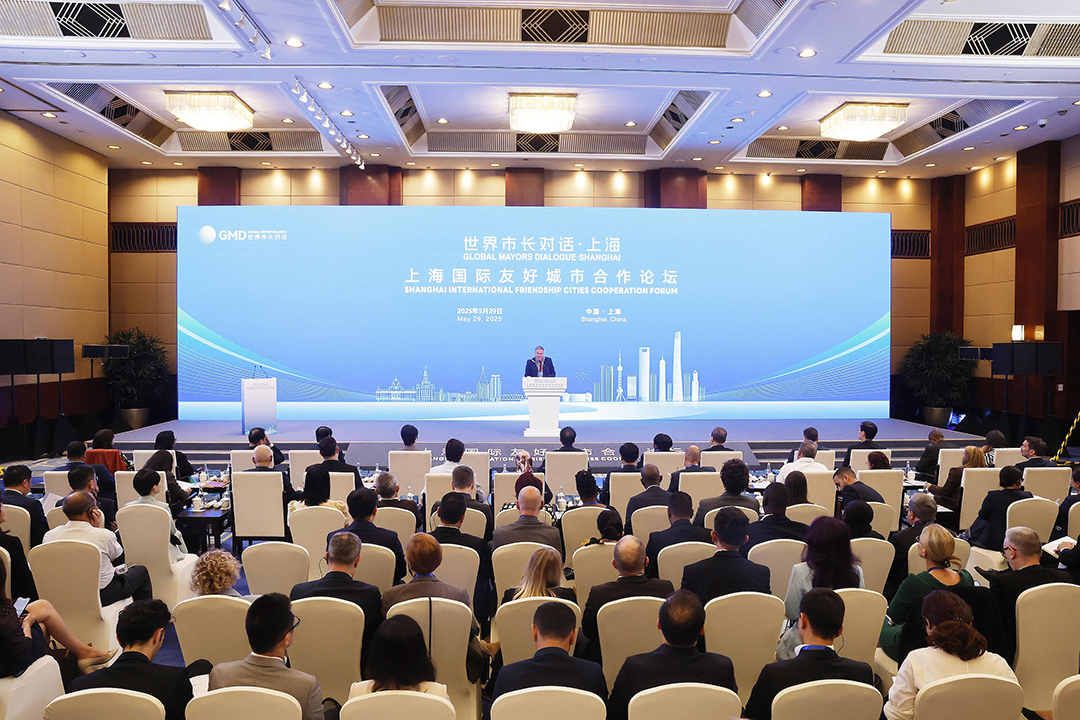 Shanghai Hosts Leaders From 26 Sister Cities to Strengthen Green Innovation Ties
Shanghai Hosts Leaders From 26 Sister Cities to Strengthen Green Innovation Ties(Yicai) June 4 -- Municipal leaders from 26 sister cities across 22 countries gathered in Shanghai for the Global Mayors Dialogue and the 2025 Shanghai International Friendship Cities Cooperation Forum to discuss sustainable urban development and innovation.
About 100 guests last week participated in the event, which aimed to explore green urban practices and promote youth-driven innovation, Yicai learned.
Several visiting mayors and officials praised Shanghai’s achievements in green and low-carbon development. Ndeshihafela Larandja, mayor of Windhoek, Namibia, expected that through cooperation with the Chinese metropolis, Namibia's capital could gain greater support for renewable energy development.
Jucelia Oliveira Freitas, vice-president of the Legislative Assembly of the State of Rio de Janeiro in Brazil, said that Shanghai has maintained an impressive balance between economic development and environmental protection -- offering confidence that Rio can pursue a similar path.
Victoria Woodards, mayor of Tacoma, Washington, said her visit to Shanghai provided in-depth insights into the city's practices in the urban green economy. She expressed interest in bringing these experiences back to her city in the United States, and emphasized Tacoma’s eagerness to strengthen collaboration with Shanghai in areas such as climate change and the clean economy.
Moreover, Woodards visited several schools in the eastern city. Shanghai and Tacoma could further deepen their collaboration through youth exchanges, enabling American students to gain a deeper understanding of Shanghai and engage in meaningful interactions with local students across areas such as sports, culture, the arts, and academics, she suggested.
Athsaphangthong Siphandone, governor of Vientiane, the capital of Laos, stressed that achieving sustainable urban development goals requires cross-border regional cooperation and the active involvement of young talent. He noted that a growing number of Laotian students are studying in China, with 70 percent returning to Vientiane after graduation to contribute across various sectors.
Siphandone added that Vientiane still lacks skilled professionals in areas such as public health and medical services, mineral resource development, education, and animal and plant inspection and quarantine. He suggested that Vientiane and Shanghai could particularly strengthen cooperation in education and improve information-sharing mechanisms to encourage more Laotian students to pursue studies in Shanghai.
Editor: Emmi Laine